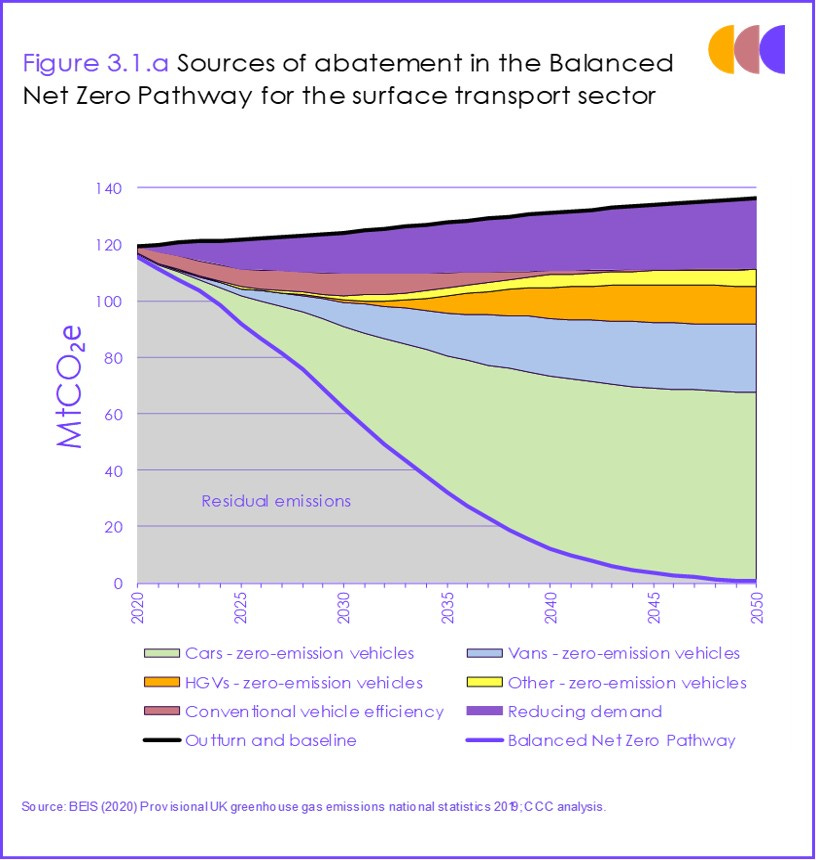🕰️ Stopped Clock - MM#629
I'd never thought I would say this, but the current UK Government has done something good for climate change...
Good day my good friend.
Let it not be said that I don’t admit my mistakes. In a recent newsletter, I made the following comment about aviation carbon emissions in the UK.
In 2021, the UK’s transport sector emitted 109 million tonnes of carbon into the atmosphere, more than any other sector of the economy. The overwhelming majority of it came from road transport, namely private cars and HGVs. Interestingly, while there are lots of headlines about private jet use, civil aviation makes up barely 0.6% of total transport emissions.
Luckily, Matt Finch of Transport and Environment was on hand to let me know the error of my ways.
As responsibility for aviation's international emissions were effectively outsourced to ICAO, they are not in the figures - so the 0.6% stat you've included from the BEIS statistics only incorporate internal UK flights. Goes without saying that the vast majority of UK flights leave the UK - and there the picture is very different, and would change your graph completely.
The joys of understanding carbon accounting. If you want to find out more about the work Transport and Environment has done on this, then simply follow this link.
For now, Matt, this is for you:
If you like this newsletter, please share it with someone else who you think will love it. The main way my audience grows is through your recommendations. I will love you forever if you do. ☺️
James
😮 Government does something good for net zero for once
It is not often I get to report good news here. Its even less often that I praise the current government. But my word I am going to do it here. As I write this, it has been a few hours since the UK Government’s Zero Emission Vehicle Mandate has become law, and will take effect from 1st January 2024.
The crazy thing is, this news is actually a game-changer for achieving net zero carbon emissions from transport. The Committee on Climate Change (who wrote a letter welcoming the law, by the way) as part of its Sixth Carbon Budget has effectively said that decarbonising the vehicle fleet is essential for the UK to achieve its net zero targets. Over half of the savings in carbon emissions forecast out to 2050 under the most ambitious scenario for decarbonising is from electrifying the vehicle fleet according to their own analysis.

And yes, I know that we will be arguing over whether we should prioritise behaviour change and modal shift as opposed to investing in electric vehicles. But however you cut the analysis and whatever assumptions you make, electric vehicles must be part of our net zero future.
But what does this mandate mean? It means that vehicle manufacturers will be required by law to meet targets for zero emission vehicles (of which electric vehicles will be the overwhelming majority) as a percentage of new cars sold every year until 2035. Starting from 22% of new cars in 2024, going to 70% of new cars by 2030, and being 100% by 2035.
Naturally, a rag-bag gang of Conservative columnists, fossil fuel lobbyists, and professional whingers called for the vote (warning: link takes you to GB News), convinced that they had the support to stop the plans. So naturally, the law passed by 381 votes for to 37 against. Their argument that this would be unfair to hard-up Brits ignoring the fact that the UK Government’s own cost-benefit analysis of the law showed a net benefit to the UK of the legislation.
This is honestly a win. A massive one if the law works as intended. Have a drink on me, because this is something to celebrate. 🍷 🍺 🥛
What you can do: Now that manufacturers are going to be spitting out electric vehicles every 5 minutes, its time to get some charging infrastructure rolled out, isn’t it? Contact your local council to ask them about their plans for rolling out EV charging infrastructure. Ask how you can work with them to identify priority locations in your village, town, neighbourhood, or city. Work with them on the research that needs doing, and come up with a plan to fund the infrastructure with them.
🎓 From academia
The clever clogs at our universities have published the following excellent research. Where you are unable to access the research, email the author - they may give you a copy of the research paper for free.
TL:DR - “Green” development is adversely affected by market competition. but if you encourage EVs then watch it take off.
Association between commuting time and depressive symptoms in 5th Korean Working Conditions Survey
TL:DR - Long commutes make you depressed.
Traffic safety versus accessibility: Investigating resistance against speed limit reductions
TL:DR - People are more likely to object to speed limits on long, country roads, and apparently on roads near Universities. Weirdly.
Metro-line expansions and local air quality in Shenzhen: Focusing on network effects
TL:DR - Single lines don’t do much to improve air quality. But expand those lines to develop whole networks and the effect is significant.
✊ Awesome people doing awesome things
The people behind Slow Ways are crowdfunding for their next project: Make Ways. The purpose of this is to map paths that are needed, as opposed to ones that currently exist (as on OpenStreetMap). They need funding for the tech, so its well worth contributing to if you have the ability to.
Thank you to John Paddington for pointing this out to me.
📰 In other news…
I’m doing this because my business coach is telling me to. As I announced on LinkedIn last week, I have taken up a Non-Executive Director role on the Scottish Government’s National Smart Ticketing Advisory Board, where I will be advising on smart ticketing and transport strategy. I look forward to working with people infinitely more clever than me on setting standards for smart ticketing in Scotland. It means that I will up in Glasgow a lot over the coming years, so if you are based there and want to chat, get in touch and we will arrange something.
✋ Opportunity Knocks
Its not often I post about funding opportunities and jobs that have the potential to make a real difference. Mainly because funding opportunities are announced every five seconds and there are whole newsletters dedicated to that, and that I don’t know much about the employers offering jobs. But right now, I am in the rare situation of there being a great funding pot available, and there also being a great job available.
The funding is the Transport Decarbonisation Demonstrators Programme, for which a share of up to £2 million in funding is available. If you have an idea that you want to demonstrate with a local business, go for this funding. This one has a fast turnaround time – January to be precise. But if you think that you can get a good consortium together in time, its worth going for.
As for the job, the Energy Demand Research Centre based at the University of Leeds is looking for a Research Fellow in Place-Based Decarbonisation, full time until March 2027. The blurb says “you will contribute to research which assesses how to localise national energy demand reduction scenarios and then explores what the implications of different approach might be in different places.” This is an opportunity to do some highly impactful research, so give it some serious thought.
What you can do: Check out the opportunities, and submit for them. Customary plug here - if you want my help as part of the Transport Decarbonisation Demonstrators Programme, I’m happy to chat so long as I can add something to it.
📷 Out and About
The nights have closed in, and so has the weather in truly British winter style of ice cold and drizzle. But when riding around on the train, you do get to see the effects that rain drops have on a dark background. The background in this case provided by Three Bridges station.
🖼️ Graphic Design

There is often an assumption made among transport planners that the richer the economy is (or gets), the more people travel. But the causes are often indirect. It is the same with increasing life expectancy at birth and increasing GDP per capita. While the data indicates a link, remember that correlation does not mean there is a direct causation.
📚 Random things
These links are meant to make you think about the things that affect our world in transport, and not just think about transport itself. I hope that you enjoy them.
Shipwrecks are havens for wildlife in areas threatened by fishing (New Scientist)
What explains greater willingness to openly express support for the radical right? (OxPol)
Inside India’s Gargantuan Mission to Clean the Ganges River (Wired)
Industrial policy is back! But do countries have the capacity to successfully implement it? (World Bank Blog)
Lessons From the Global South’s Public-Private Climate Collaborations (The City Fix)
✍️ Your feedback is essential
I want to make the calls to actions better. To do this, I need your feedback. Just fill in the 3 question survey form by clicking on the below button to provide me with quick feedback, that I can put into action. Thank you so much.


